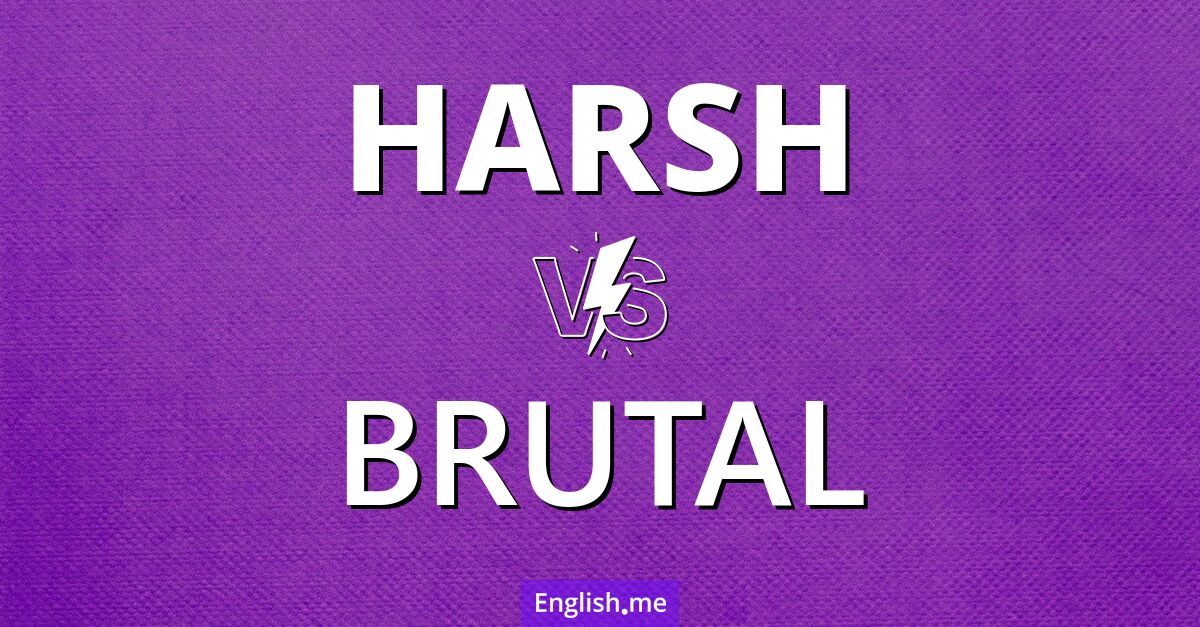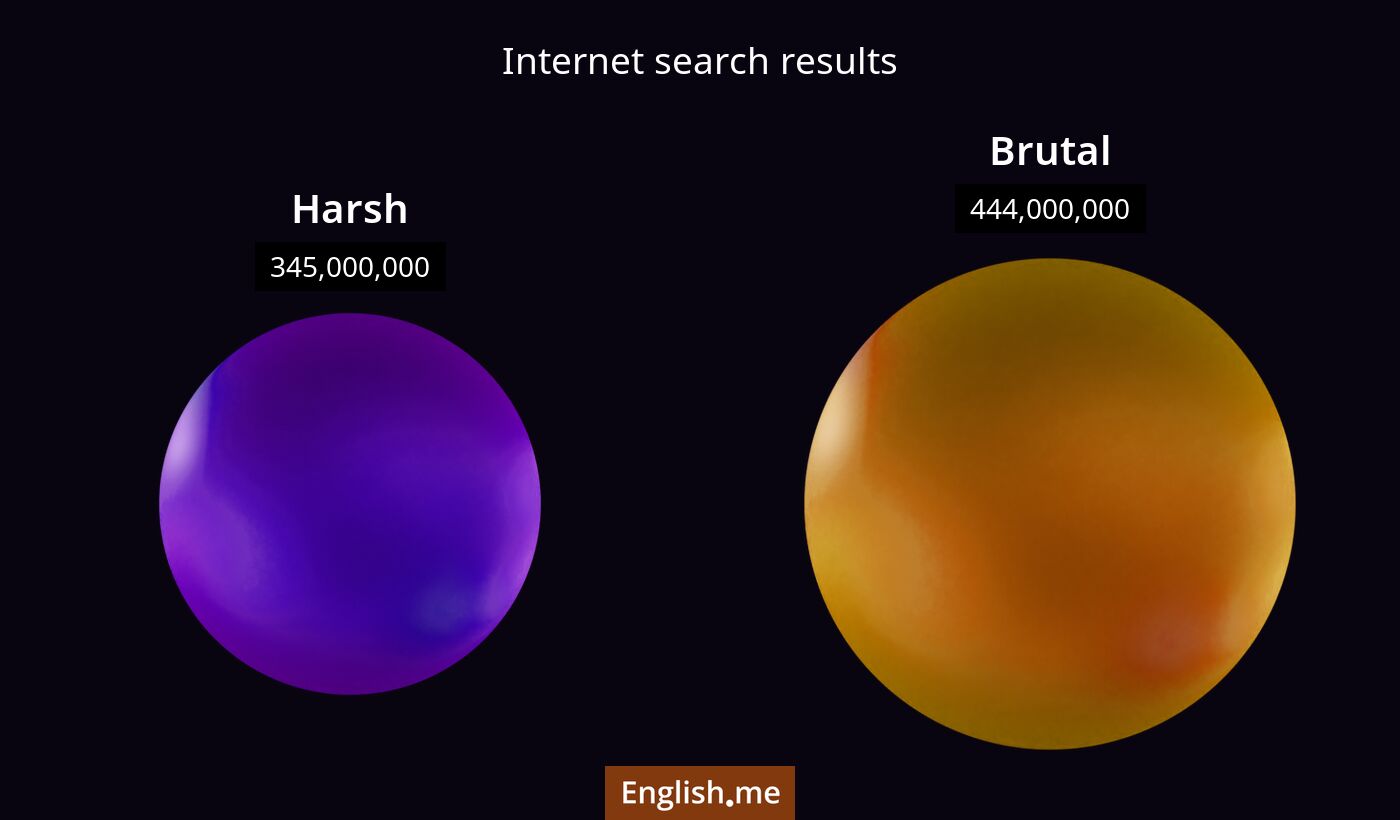"Harsh" vs. "brutal": comparing words of severity
Reviewed and edited by  Anwar Kareem 25/10/2024, 14:25
Anwar Kareem 25/10/2024, 14:25
English.me team member

 What is similar?
What is similar?
Both "harsh" and "brutal" describe something that is severe or extremely unpleasant, often referring to actions, conditions, or criticism.
 What is different?
What is different?
"Harsh" typically implies severity that may be strict or unkind but without necessarily implying cruelty. "Brutal," on the other hand, implies a more extreme level of severity, often involving cruelty or violence.
 Which one is more common?
Which one is more common?

 Examples of usage
Examples of usage
Harsh- The teacher's criticism was harsh but fair.
- The harsh winter weather took a toll on the crops.
- She faced some harsh realities when she moved to the city.
- The defeat was brutal and left the team devastated.
- The brutal attack shocked the community.
- His remarks were brutally honest, sparing no one's feelings.

 English
English español
español française
française italiano
italiano deutsche
deutsche 日本語
日本語 polski
polski česky
česky svenska
svenska Türkçe
Türkçe Nederlands
Nederlands